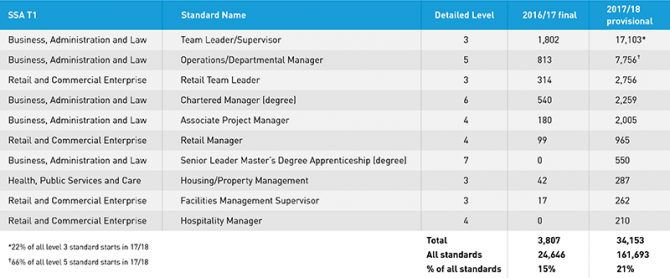It’s been a ‘good’ week for sixth form colleges, with a pair of grade two verdicts following full inspections.
At the opposite end of the spectrum, an independent provider has received the lowest possible grade in the only other full inspection report published this week.
Longley Park Sixth Form College, in Sheffield, was rated ‘good’ across the board in its first inspection since it converted to a 16 to 19 academy in 2017.
According to the report, published November 9 and based on an inspection in early October, learners at the college “enjoy their learning and most make fast progress”.
“Students take pride in their work and develop the confidence, knowledge and skills that they need to progress to further and higher education, training or employment,” the report said.
Staff “identify quickly” those learners that need extra help and “support them very effectively, both in and out of the classroom”.
However, “not enough” of the small number of learners studying A-levels “achieve the grades of which they are capable”.
Franklin College, an SFC in Grimsby, was also rated grade two across the board – up from its previous ‘requires improvement’ rating.
Leaders and managers were praised for the “rapid” pace of improvement since they began tackling the issues identified at the previous inspection in 2016, in a report published November 5 and based on an inspection in late September.
“Governors, leaders and managers have created an inclusive, welcoming college that provides a supportive learning environment in which students flourish,” the report said.
Learners on 16 to 19 study programmes make “very good progress” in both English and maths, while learners on level two programmes “achieve high grades on their courses”.
However, attendance on adult learner programmes – mostly taught by a subcontractor through distance learning – was “too low”.
Independent learning provider XTP International was rated grade four across the board, in a damning report published November 9 and based on an inspection in early October.
As previously reported by FE Week, inspectors found that several apprentices at the Stockport-based apprenticeship provider “have not received any training since they started their apprenticeship more than eight months ago”.
Just one early monitoring visit to an apprenticeship provider has been published this week.
Derby-based C2C Training was found to be making ‘reasonable progress’ in all three themes under review.
A further four monitoring visit reports have been published this week.
Three of these were for providers rated as ‘requires improvement’: Sheffield College, St Charles Catholic Sixth Form College, and Sir George Monoux College.
The fourth was a post-merger monitoring visit, to Cheshire College – South and West.
| GFE colleges | Inspected | Published | Grade | Previous grade |
| Sheffield College | 10/10/2018 | 06/11/2018 | M | M |
| Cheshire College – South and West | 03/10/2018 | 08/11/2018 | M | M |
| Sixth form colleges | Inspected | Published | Grade | Previous grade |
| Longley Park Sixth Form College | 03/10/2018 | 09/11/2018 | 2 | – |
| St Charles Catholic Sixth Form College | 26/09/2018 | 08/11/2018 | M | M |
| Sir George Monoux College | 10/10/2018 | 09/11/2018 | M | M |
| Franklin College | 25/09/2018 | 05/11/2018 | 2 | 3 |
| Independent learning providers | Inspected | Published | Grade | Previous grade |
| CTC Training Limited | 17/10/2018 | 08/11/2018 | M | M |
| XTP International Limited | 02/10/2018 | 09/11/2018 | 4 | 3 |



